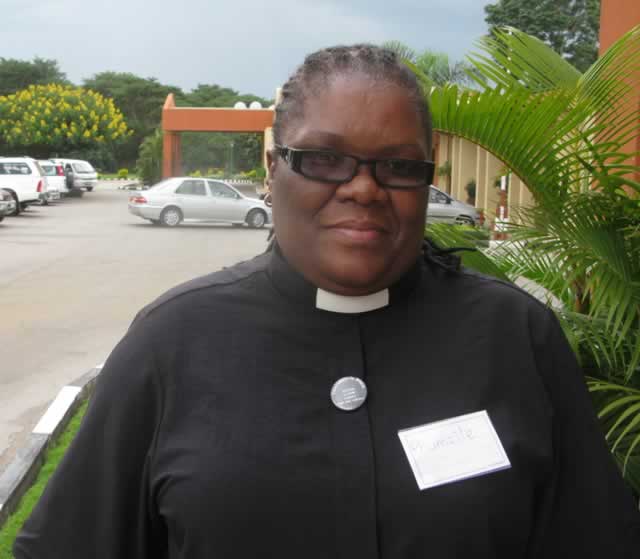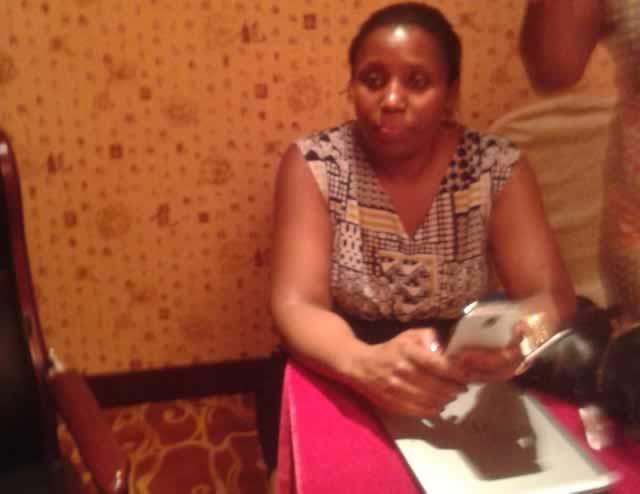Herbs, correct diet save lives
Thanks to India which is now dubbed the “Pharmacy of the Third World”, the prices of brand medicines which were beyond the reach of many have been slashed.
Joao Zangaroti (47), who is living positively, was diagnosed HIV positive in 1994. He said the diagnosis changed his life.
The doctor told him that he could die anytime since his immunity was compromised. “It was all gloom and doom, the health personnel did not help matters at all. The doctor told me that I had a month or a year to live depending on how I took the message. I was devastated,” said Zangaroti.
Zangaroti’s wife got pregnant in 1996 and when she went to ante-natal clinic she was ordered to take an HIV test since she was not feeling well.
“My wife was pregnant and ill so when she went for an ante-natal visit she was advised to take an HIV test. The results came out positive. She too was devastated and was under so much stress that she had a miscarriage,” he said.
Zangaroti said he then went into denial and this did not help matters. He worked as a tailor in a factory that had export orders and he kept making blunders due to lack of concentration.
“I went into denial and this affected my work. I kept making mistakes in the chain supply at the factory where I worked as a machinist so I was dismissed.
“I had not disclosed my status so my dismissal had nothing to do with that,” he said.
With no job life in the city became tough and Zangaroti abandoned ship and went to live with a nephew in Chihota.
“The only way for me then was to leave the city lights. I went and stayed in Chihota for a year. I did not even disclose to my nephew. My wife’s health took a nosedive and I only came back when I was told that she had died. I came back to the city and buried her,” said Zangaroti. He could not continue to run away from his shadow. In his community in Highfield there was a support group for positive living. He became friends with the group and in no time he was a member.
“I joined the Men’s Action Group that met at Zororo Centre in 1998. We were greatly assisted by Doctor Mtetwa. I started to gain confidence but I was affected when a member died. Then the group consisted of 11 men and by 1999 three had died. This led to the disintegration of the group,” he said.
Zangaroti was left to forge ahead on his own since the group had a machine to make leather jackets.
“I saw that women were greatly affected and our group was previously made up of men only. I then mooted the idea that it had to be gender sensitive and thus it opened up to women who were affected through losing relatives and those who were HIV positive,” he said.
The group now known as Women for Peace was founded. Zangaroti alluded that men found it difficult to work in public spaces and this resulted in less men joining support groups.
“I have found out that men would rather continue to live a double life, they have wives and girlfriends and do not disclose their HIV status. This hinders them from being open. They do not join support groups because by virtue of being in a support group your status is an open secret,” he said.
He added that since the group met during the week most men failed to attend due to work commitments.
“Some men have said they fail to attend due to work commitments and would rather meet on weekends. During weekends women said they do not find the time since they have to be with their families so this became a challenge,” he said.
Zangaroti said that in 2001 he had intended to volunteer at the Child Protection Society but was snubbed.
“One artist, a musician and myself all being males wanted to volunteer and work with CPS but to our surprise when training was offered only women were selected. There were no reasons given but I suspect they were not comfortable with men being care givers,” he said.
“In 2001 health promoters (anautsanana) were selected and as a man I was left out again,” he said.
Zangaroti also said the environment at hospitals was not conducive even if men wanted to accompany their wives.
“I remarried and in 2003 my wife went on the PMTCT programme, I accompanied her and saw that the environment was not conducive to men being around.
“As an activist today, the environment remains the same. I have been to clinics, men want a bit of privacy but clinics and hospitals do not offer that,” he said.
Zangaroti saw that the name Women for Peace excluded men and they went on to modify and became the Coping Centre.
“The Coping Centre has horizontal management which means everyone is equal. We have a gardening project.
“I had been trained in permaculture by the Men’s Action Group so with that knowledge we now have a herbal garden. We have parsley, spinach, onions, peas, oregano, marjoram, lavender and many other herbs which help to boost the immune system. I have used these herbs for over a decade and am proud to say that with the correct diet one can repair a damaged immune system,” he said.
The Coping Centre also makes soap and has a ready market in the community.
Zangaroti, a strict vegetarian, is not yet on active ART, thanks to herbs and the diet he strictly follows.
“I am on cotrimoxazole prophylaxis and some people do not believe that I am HIV positive. I have some members of the Coping Centre who also have their health monitored at various centres still on cotrimoxazole and their CD4 count is way above 500,” he said.
Zangaroti said the future of positive living does not appear bright for as long as we do not have alternatives for people not yet initiated on ART.
“Herbal use needs support and research to explore how it works and will relieve the burden of those suffering on the waiting list,” he said. There are 500 000 people waiting to be initiated on ART.
Feedback: [email protected]









Comments